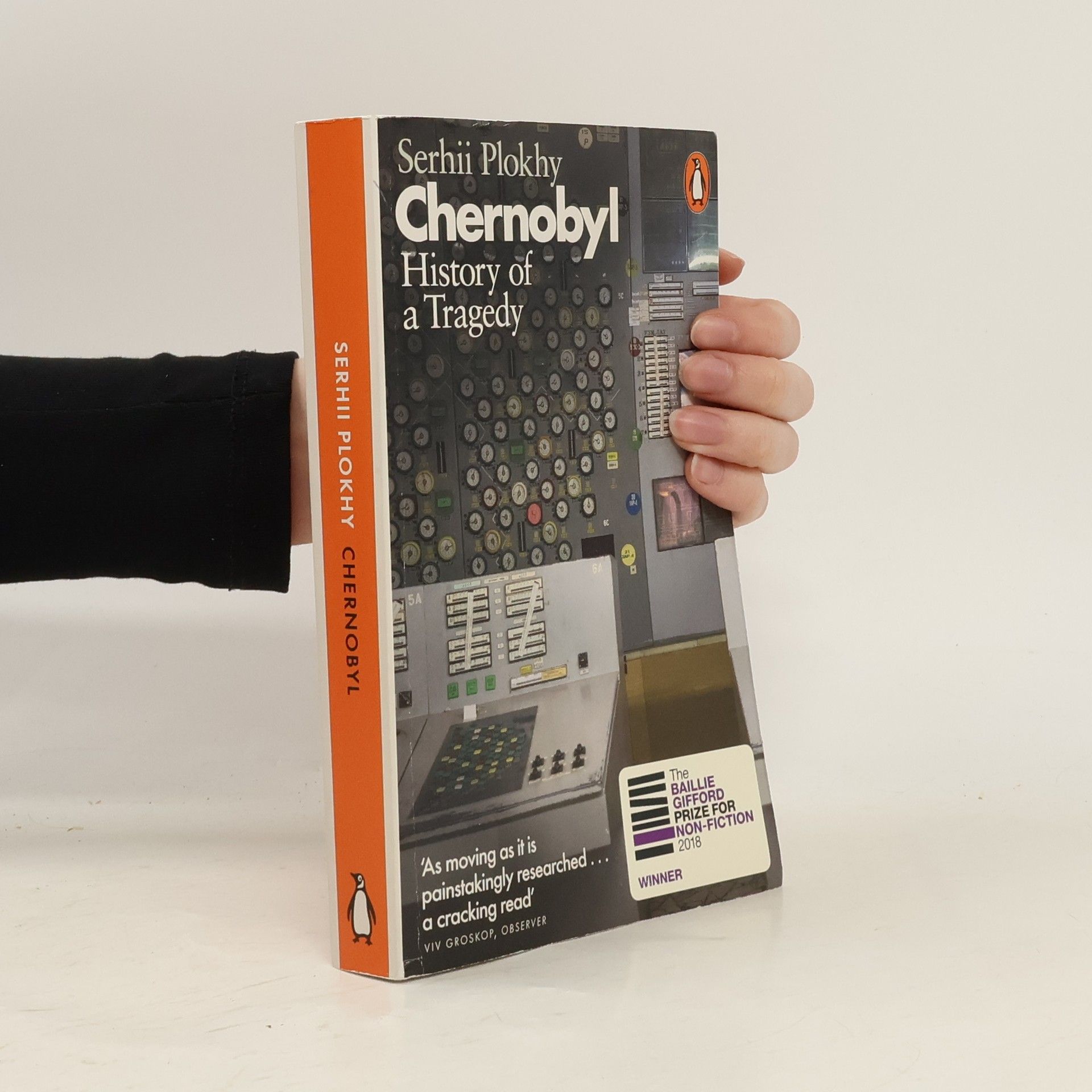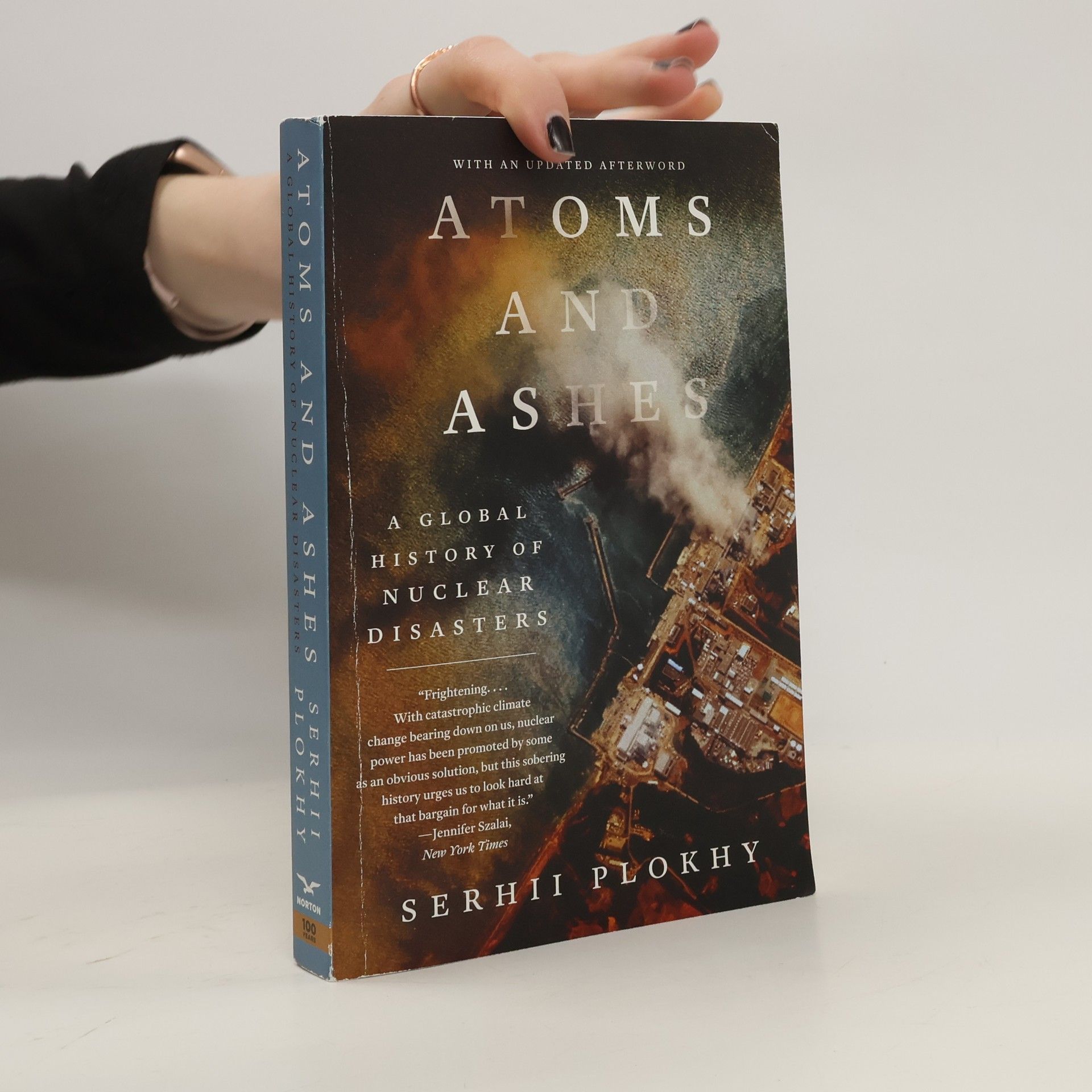The book is positioned as essential reading, highlighting the author's unique qualifications to address its themes. It promises to provide insightful perspectives and valuable information, making it a significant contribution to its subject matter. The endorsement from Cal Flyn underscores the author's expertise and the book's importance in its field.
Serhii Plokhii Book order (chronological)
Serhii Plokhy is a leading Ukrainian and American historian whose work focuses on Eastern Europe. His extensive publications, written in English, Ukrainian, and Russian, offer deep insights into the region's history and culture. Plokhy's expertise and analytical approach make him a pivotal figure in the study of East European history, providing readers with invaluable understanding.







Der Mann mit der Giftpistole
Eine Spionageschichte aus dem Kalten Krieg
Im Herbst 1961 überlief der KGB-Attentäter Bogdan Staschinski nach Westdeutschland und verriet der CIA Geheimnisse. Sein Prozess beleuchtet das Attentat auf Stepan Bandera 1959 und führte zu Veränderungen im KGB. Staschinskis Geschichte inspirierte zahlreiche Werke, darunter Ian Flemings letzter James-Bond-Roman.
Rosja Ukraina Największe starcie XXI wieku
- 528 pages
- 19 hours of reading
PIERWSZA TAKA KSIĄŻKA O WOJNIE W UKRAINIE Zapytany w przededniu inwazji, kto doradza prezydentowi Putinowi, Siergiej Ławrow zażartował: „Iwan Groźny. Piotr Wielki. I Katarzyna Wielka”. Serhii Plokhy, ukraińsko-amerykański historyk i wybitny znawca Rosji, doskonale pamięta te słowa. W swojej najnowszej książce odtwarza przebieg rosyjsko-ukraińskiej wojny i pieczołowicie analizuje działania militarne, strategie i prawdopodobne przyszłe konsekwencje. Choć rosyjski atak stanowi eskalację konfliktu trwającego od 2014 roku, Plokhy upatruje jego korzeni znacznie głębiej. Ta dziewiętnastowieczna, staroświecka pod względem ideologicznym, toczona przy użyciu dwudziestowiecznej taktyki i z wykorzystaniem nowoczesnej broni wojna konwencjonalna jest jednocześnie największym i najbardziej brutalnym konfliktem w Europie od 1945 roku. W jej płomieniach wykuwany jest nowy porządek świata.
On 24 February 2022, Russia stunned the world by launching an invasion of Ukraine. In the midst of checking on the family and friends who were now on the front lines of Europe's largest conflict since the outbreak of the Second World War, acclaimed Ukrainian-American historian Serhii Plokhy inevitably found himself attempting to understand the deeper causes of the invasion, analysing its course and contemplating the wider outcomes.The Russo-Ukrainian War is the comprehensive history of a conflict that has burned since 2014, and that, with Russia's attempt to seize Kyiv, exploded a geo-political order that had been cemented since the end of the Cold War. With an eye for the gripping detail on the ground, both in the halls of power and down in the trenches, as well as a keen sense of the grander sweep of history, Plokhy traces the origins and the evolution of the conflict, from the collapse of the Russian empire to the rise and fall of the USSR and on to the development in Ukraine of a democratic politics.Based on decades of research and his unique insight into the region, he argues that Ukraine's defiance of Russia, and the West's demonstration of unity and strength, has presented a profound challenge to Putin's Great Power ambition, and further polarized the world along a new axis. A riveting, enlightening account, this is present-minded history at its best.
Der Angriff
Russlands Krieg gegen die Ukraine und seine Folgen für die Welt
- 496 pages
- 18 hours of reading
Welche Folgen hat Russlands Angriff in den kommenden Jahrzehnten für den Westen und die Welt? Dieses hochaktuelle, dringende Buch gibt Antworten auf entscheidende Fragen unserer Zeit. In seinem neuen Buch gibt der renommierte Historiker und Ost-Europa-Experte Serhii Plokhy Antworten darauf, wie Russlands Krieg die Weltordnung der nächsten Jahrzehnte verändern wird. Er erzählt von einem ukrainischen Volk, das als Frontstaat im jetzt anbrechenden neuen Kalten Krieg endlich seine Identität gefunden hat. Und er skizziert eine globale Außenpolitik, die sich wieder weg von ökonomischer Kooperation, hin zu Dominanz, Vasallenstaaten und militärischer Stärke entwickelt – mit gravierenden Folgen für uns alle. Nur wenn der Westen sich dieser Realität stellt, wird er in Zukunft seine Freiheit behaupten können.
Die Frontlinie
Warum die Ukraine zum Schauplatz eines neuen Ost-West-Konflikts wurde
- 544 pages
- 20 hours of reading
In «Die Frontlinie» analysiert der Historiker Serhii Plokhy die entscheidenden Entwicklungen in der Geschichte der Ukraine. Plokhy hat in den letzten Jahren zahlreiche, im englischsprachigen Ausland sehr erfolgreiche Werke zur Ukraine verfasst. In diesem Buch präsentiert er die wichtigsten Erkenntnisse und Analysen seiner historischen Forschung konzise und pointiert, indem er die Schlüsselereignisse, Entwicklungen und Wendepunkte aufzeigt und zeithistorisch einordnet: Das umfasst die komplexe Beziehungder Ukraine zu Russland und zum Westen, die Belastung von Katastrophen wie dem Holodomor und dem Zweiten Weltkrieg, die Bedeutung von Tschernobyl und den Einfluss der Ukraine auf den Zusammenbruch der Sowjetunion. Dieses Buch lässt einen mehrdimensionalen Blick auf ein Land zu, das unfreiwillig die Schlagzeilen dominiert. Zugänglich und kenntnisreich geht Plokhy zu den Wurzeln des langjährigen politischen, kulturellen und militärischen Konflikts in der Ukraine. Seine Ausführungen sind so erhellend wie erschreckend.
Atoms and Ashes
A Global History of Nuclear Disasters
The late March 1979 incident at the Three Mile Island nuclear power plant prompted the evacuation of nearly 145,000 residents from Harrisburg, Pennsylvania, due to fears of radiation from a partial meltdown. While a catastrophic explosion was averted, the event profoundly impacted public perception of nuclear energy, marking a significant turning point in America's relationship with nuclear power and leaving lasting psychological scars on those affected.
Das Tor Europas
Die Geschichte der Ukraine
Die Ukraine ein Land ohne eigene Geschichte? Der ukrainische Historiker von Weltrang Serhii Plokhy zeigt, wie mannigfaltig und dramatisch die Historie dieses Landes zwischen Europa und dem Osten ist. Nichts könnte derzeit aktueller sein. Mit dem Ukraine-Krieg hat eine neue Zeitrechnung in Europa begonnen. Im Kern geht es in dem Konflikt um die Geschichtsdeutung eines riesigen Landes, das jahrhundertelang Zankapfel der Großmächte war: Es gilt als Wiege der Russen und war mythischer Ort für die alten Griechen, Wikinger und Mongolen beherrschten das heute Staatsgebiet ebenso wie Österreich-Ungarn, Polen und die Sowjets, die erst mit dem "Holodomor“, dem grausamen Aushungern der Bevölkerung, den ukrainischen Widerstand brechen konnten. Dass die Ukrainer ein Volk mit eigener Sprache, Tradition und Geschichte sind, zeigt der Harvard-Professor Serhii Plokhy so deutlich wie fundiert und eloquent. Das Tor Europas ist das vielleicht wichtigste Buch zum Verständnis der Hintergründe des aktuellen Konflikts. Es zeigt, wie die Ukraine zum Spielball zwischen Ost und West wurde und dennoch stest seine eigene Identität bewahrte. Das Buch wird bis zur Drucklegung in ständigem Austausch mit dem Autor aktuell gehalten
Nuclear Folly: A History of the Cuban Missile Crisis
- 444 pages
- 16 hours of reading
A harrowing account of the Cuban missile crisis reveals how the US and USSR approached nuclear apocalypse. Nearly thirty years post-Cold War, world leaders are abandoning disarmament treaties and escalating nuclear threats. To navigate this new atomic age, we must revisit the lessons from the crisis. This narrative offers an international perspective, detailing the complex decision-making that involved key figures like John Kennedy, Nikita Khrushchev, and Fidel Castro. Plokhy vividly recounts JFK's interactions with Khrushchev, Castro's defiance, and the Soviet troops' efforts to conceal nuclear installations in Cuba, which were still detected by U-2 spy planes. The account highlights the near misses at sea, where a Soviet nuclear-armed submarine almost launched its weapons. Miscommunication and misinformation often plagued both sides, bringing them perilously close to disaster. Ultimately, nuclear war was avoided due to a shared fear of mutual destruction. Drawing on Soviet archival sources and White House tapes, Plokhy captures the tension of those days and provides insights to help us confront current global challenges.
The Frontline collects essays in a companion volume to Plokhy's The Gates of Europe and Chernobyl. The essays present further analysis of key events in Ukrainian history, including Ukraine's relations with Russia and the West, the Holodomor and World War II, the impact of Chernobyl, and Ukraine's contribution to the collapse of the Soviet Union.




